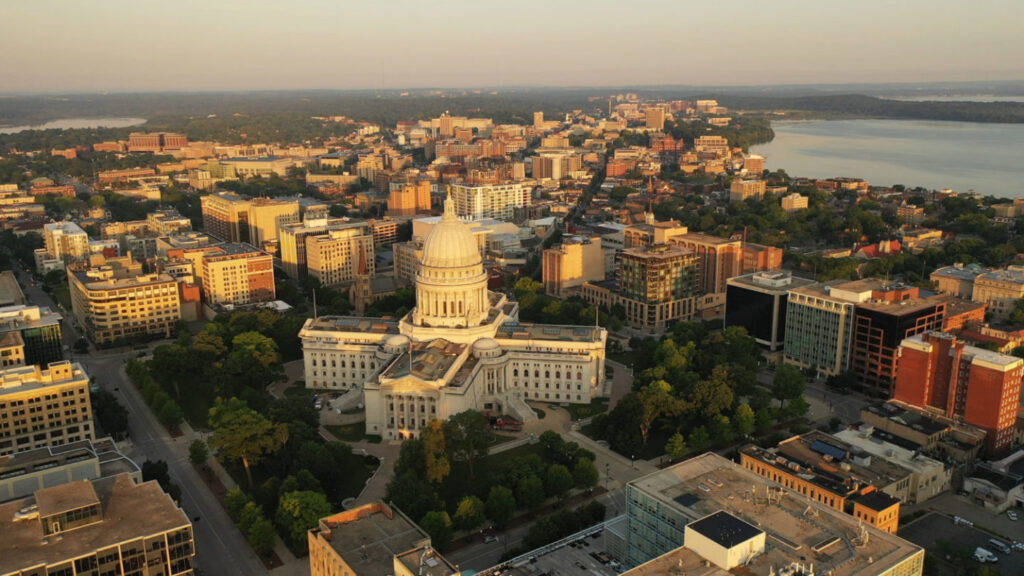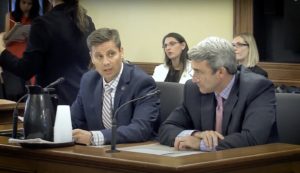Parental rights bills sail through Wisconsin Senate, face headwinds on governor’s desk
(The Center Square) – Protection of parental rights and other education reforms are the focus of several bills passed by the Wisconsin Senate on Tuesday.
The Empowering Parents K-12 Education…

(The Center Square) – Protection of parental rights and other education reforms are the focus of several bills passed by the Wisconsin Senate on Tuesday.
The Empowering Parents K-12 Education Reform Package of bills includes legislation aimed at increasing charter schools in the state as well as eliminating parent income limits and pupil caps for eligibility.
The bills easily passed the Republican-led chamber, but it’s anticipated all will be vetoed when they reach the desk of Democratic Gov. Tony Evers, the former superintendent of Wisconsin’s public school system.
A recent Marquette University Law Poll reported 59% support the use of publicly funded vouchers to attend private or religious schools. Real Clear Opinion Research found that 72% of registered voters support the concept of school choice, an 8% increase since early 2020.
Assembly Bill 963 requires the government prove “a compelling interest” before public employees usurp parental or legal guardians’ authority to guide their children’s religion, medical care and records, and education.
The bill specifically ensures parents the following rights, unless these rights violate a law or court order:
- The right to determine the religion of the child.
- The right to determine the type of school or educational setting the child attends.
- The right to determine medical care for the child, unless specified otherwise in law or court order.
- The right to review all medical records related to the child, unless specified otherwise in law or court order.
- The right to determine the names and pronouns used for the child while at school.
- The right to review instructional materials and outlines used by the child’s school.
- The right to access any education-related information regarding the child.
- The right to advanced notice of any polls or surveys instituted by the child’s classroom.
- The right to request notice of when certain subjects will be taught or discussed in the child’s classroom.
- The right to opt out of a class or instructional materials for reasons based on either religion or personal conviction.
- The right to visit the child at school during school hours, consistent with school policy, unless otherwise specified in law or court order.
- The right to engage with locally elected school board members of the school district in which the child is a student, including participating at regularly scheduled school board meetings.
- The right to be notified of the creation of or updates to a security or surveillance system at the child’s school.
- The right to be informed of any disciplinary action taken against or threatened against the child.
- The right to be timely informed of any acts of violence or crimes occurring on grounds of the child’s school.
AB 963 also acknowledges parental and guardian rights may be more comprehensive than outlined in the bill. Parents and legal guardians will be allowed to sue any public entity accused of violating any of the rights listed in the bill. The bill doesn’t authorize any parental or guardian neglect or abusive behavior of their child or children, nor does it prevent a court from issuing any order within its purview.
AB 967, if signed into law, would allow any charter school governing board to open additional charter schools if its currently operated schools achieve in either of the Department of Public Instruction’s top two performance categories.
AB 968 aims to establish the Charter School Authorizing Board, which would be attached to the Department of Public Instruction. The CSAB would be granted authority to approve future charter schools.
AB 970 eliminates the income limits on the Wisconsin Parental Choice Program, Milwaukee Parental Choice Program and the Racine Parental Choice Program. The bill would also remove the cap on pupil participation limits in the WPCP.



